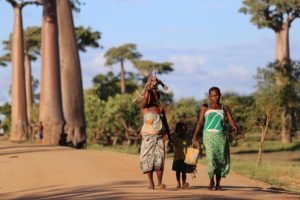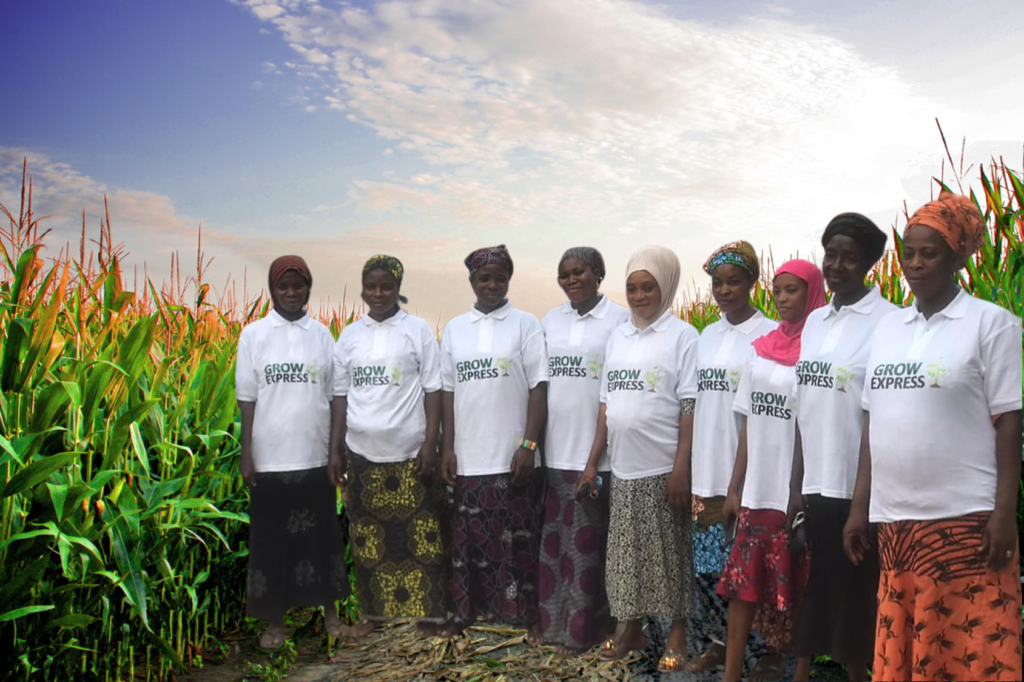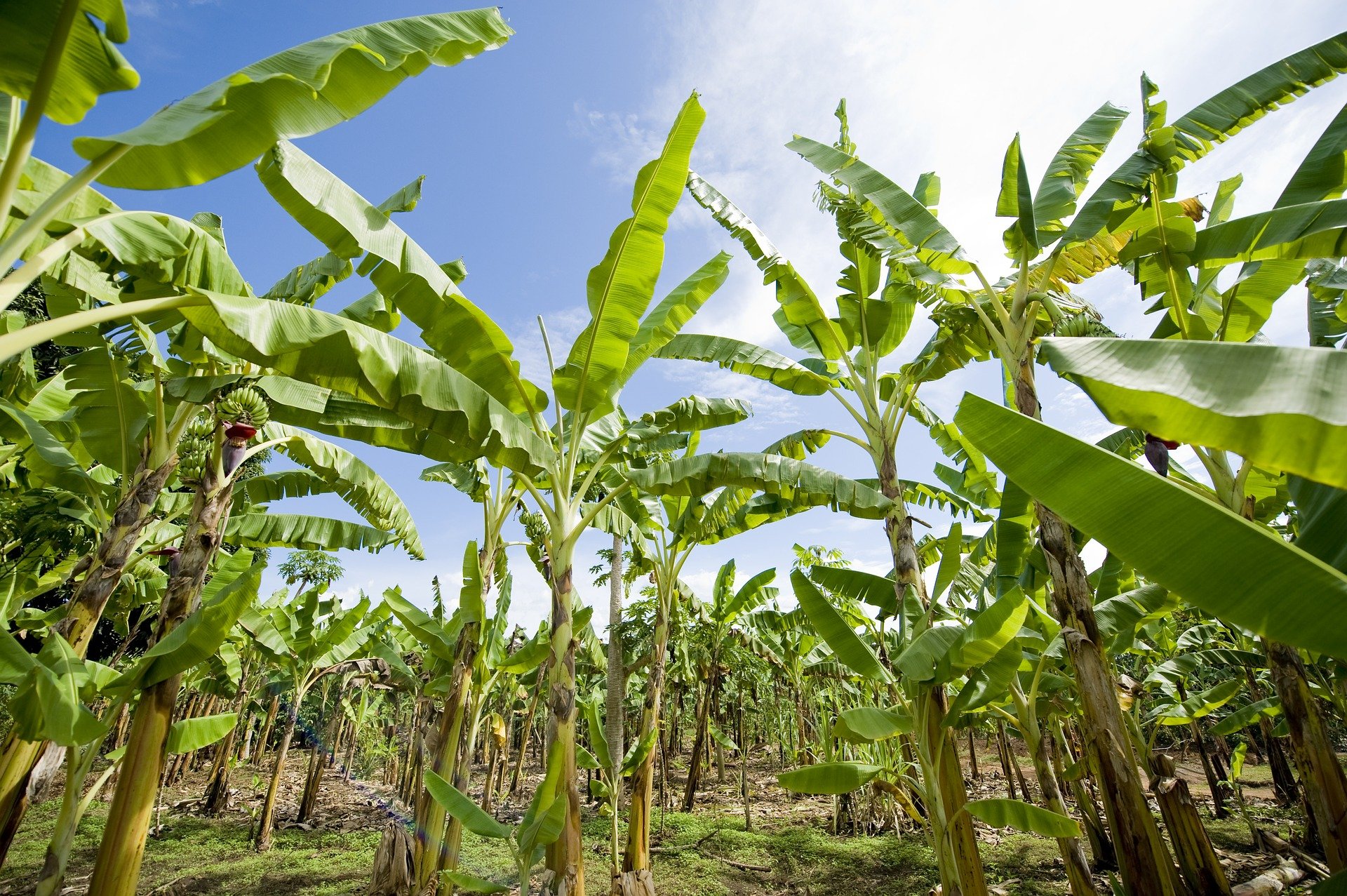Nigeria’s opportunities for agricultural transformation, by Dr. Thomas Schulte, Berlin in conversation with Thomas Wegener, manager, Africa expert and founder of GrowExpress.
Thomas Wegener: „By 2021, Africans should be tired of talking about the continent’s poverty, prosperity and potential. The consensus is that Africa has the world’s highest amount of hungry people at 20% of the population and the world’s area of uncultivated arable land. According to World Bank and UN Food and Agriculture Organization studies, the African savanna of Guinea alone has twice as much land as the world has for wheat production.“ What can be done?
EXTRACTIVISM as typical of Africa’s economies
According to Thomas Wegener, „The picture needs to be refocused – Africa is often referred to as a producer of natural resources such as cocoa, coffee, diamonds, copper, petroleum as in Nigeria, and associated products, it goes on to say. But producing or owning resources alone doesn’t count – what matters is what you do with your production and how you turn potential into reality.“ This type of economy is called extractivism. It is unstable, lacks high value added, and must be overcome. Food security is the key to leaving recession and achieving Africa’s industrial agenda. The continent currently spends about $35 billion on food imports per year, and this amount will increase to $110 billion by 2025 if trends continue.
CLIMATE – Ecological consequences
A changing climate, desertification and land degradation, and a demographic boom are putting these resources under massive stress and causing damage to the soil and water systems. The associated consequences range from local-such as increased agricultural workloads, especially for women-to a broader national incidence of migration, conflict, and insecurity with international implications. Land degradation and abuse are where the continent’s emissions are greatest. Thomas Wegener: „A typical example is the dire impact on water and soil in Nigeria caused by the oil industry in Nigeria. Recently, yes, a court in the Netherlands ordered an oil company to pay damages for this environmental damage in Nigeria.“
MOMENTANEOUS SITUATION – Soil Degradation

Land degradation continues as climate change and variability make droughts and floods more frequent and severe. At the same time, competition for land is intensifying not only because of urbanization, population growth, and higher demand for food and energy. Key factors include policies and agricultural practices that influence land use and enable balanced environmental recovery. Africa’s ability to plan for development will depend heavily on the future of agriculture and how it can turn current problems into opportunities. Unlocking agricultural potential depends not only on having the right economy, but also on the ability to restore and regenerate land, to combat climate change. Africa’s development path depends on smart policies and, of course, effective implementation. Governments need to make progress on the fundamental issue of land tenure security and accelerate the delivery of absolute basics such as supply chain infrastructure.
Says Thomas Wegener, „In addition to roads, this includes storage facilities and marketing points to minimize post-harvest losses (up to 40% of total production) and support the development of domestic and cross-border value chains. Also needed is a structure of incentives and services to modernize a sector populated mainly by smallholder farmers.“ The list includes access to credit, tax breaks and payments for private sector eco-services. In turn, crop and farm livelihoods require more diversity, supported by intensive extension services and farmer networks involved in land use planning. The COVID-19 pandemic has exacerbated the continent’s food insecurity, disrupted entire supply chains, and exacerbated social inequalities. At the upcoming AU-EU summit, leaders must reiterate an uncompromising message that Africa’s aspirations for agro-industrialization will be ruled out without a robust agricultural system. Taking this line further means that a green transition can only bear fruit if a commitment to massive investment in agriculture is made, heeded and implemented.
SUCCESS MODEL – Block Farming
The problems of poverty and food insecurity faced by smallholder farmers in the context of community agriculture in Africa can be effectively addressed through the „block farming“ strategy.
Community block farming is a type of rural agriculture strategy in which farmers in large contiguous blocks of land are provided with everything they need to farm successfully, from land preparation to inputs such as seeds, fertilizer, and access to markets.
„Poverty of African smallholder farmers and food insecurity are problems that are solvable through our efficient processing of unused agricultural land in the Block Farming System“
The system is reverse contract farming, where farmers receive inputs and services on credit while under contract. Repayments are made by delivering a portion of their products to the input providers as compensation for the latter’s services rendered.
SECURITY – Basic Nutrition and Profitability

Thomas Wegener GrowExpress on this „With the block farm strategy, you can change economics and efficient land use of the continent, secure basic nutrition and export the surplus to the rest of the world.“
He explained that this community block farming model works very well because, unlike most out-grower programs, participation in agricultural activities is very high.
„We control almost all the factors of production. The land belongs to the community, but is leased to us for redistribution to farmers who manage adjacent properties, „ he said.
Thomas Wegener also explained that practicing the block model on a small scale may not be profitable, but noted that the community block model tends to be very profitable on a much larger scale.
„Our model has forced us to plan at a large scale because on 20-100 acres it doesn’t have the scaling effect needed for basic services. It needs to happen on >500 acres for farmers to take advantage of scale and for the service provider to live up to its promise of stable and affordable food,“ he said.
„To implement this model, we have established different business lines mechanization with tractors to provide land preparation services, provide inputs through relationships with agro-product manufacturers such as seeds and fertilizers, and finally successful market access for the products.“
This ensures an economically successful agriculture with very good prospects in the heart of Africa in the long term.
Responsible by Press Law:
Kingsley Ekwueme
Managing Director
Contact:
GrowExpress Limited
Kingsley Ekwueme
Managing Director – GrowExpress Ltd.
Cocoa House, Dugbe
200263 Ibadan
Nigeria
Tel:+234 7031135981
Mail: AtYourService@growexpress.biz
Web: https://growexpress.org
Company Description:
GrowExpress Ltd office is located in Nigeria, Cocoa House, Dugbe, 200263 Ibadan. Completed in 1965 at a height of 105 meters, Cocoa House was once the tallest building in Nigeria and the first skyscraper in West Africa. It is located in Dugbe, one of the main commercial areas in Ibadan, Oyo State, Nigeria. The GrowExpress Ltd. company farms an estate of 800 hectares about 200 km north of the megacity of Lagos, Nigeria. For more information, visit: https://growexpress.org
Press contact:
GrowExpress Limited
Kingsley Ekwueme
Cocoa House, Dugbe
200263 Ibadan
Nigeria
Tel:+234 7031135981
Mail: AtYourService@growexpress.biz
Web: https://growexpress.org


